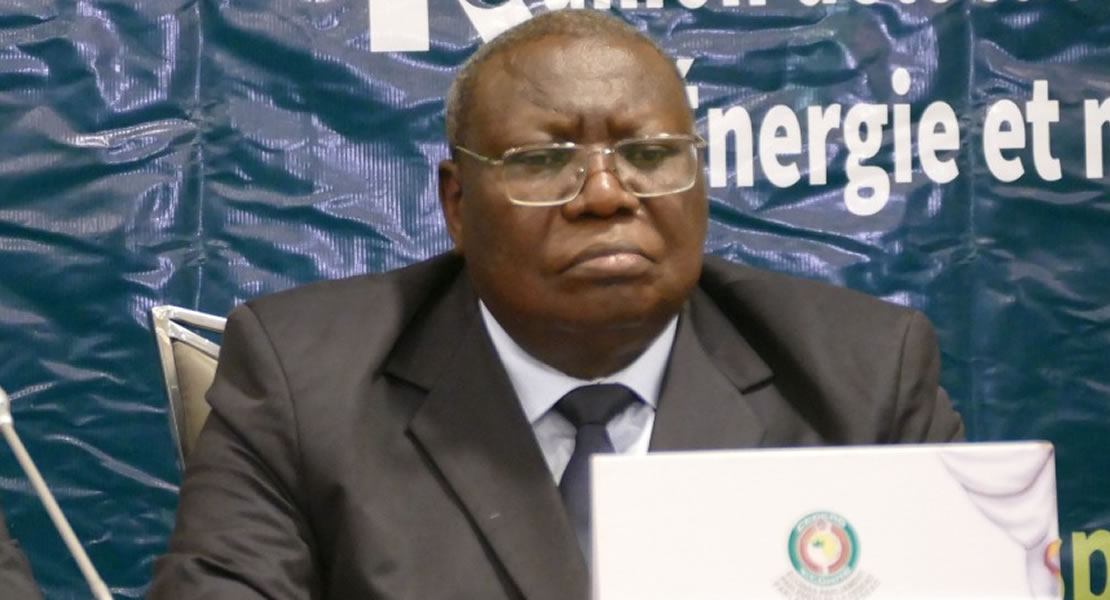
Air transport fares within the West African sub-region remain the highest in the world, Mr. Sédiko Douka, ECOWAS Commissioner for Infrastructure, Energy and Digitalization, has said.
Douka also revealed that recent studies conducted by renowned organizations showed that air transportation within West Africa is still less than 10%, which represents the lowest. He said the situation has become a barrier to the integration of the region.
Douka spoke in Lome on Tuesday at the opening of the Sixth Legislature of ECOWAS Parliament Delocalised meeting of the Joint Committee on Infrastructure, Energy and Mines, Agriculture, Environment and Natural Resources.
The theme of the meeting is: “Air transport as a means of integrating the peoples of West Africa: Strategy for reducing the cost of air ticket.”
He said the ECOWAS leadership is concerned with the situation and has therefore charged the Commission to coordinate and harmonize the air transport policies, programs, and projects of Member States.
He stressed the importance of the Lome meeting to address the gap, revealing that the meeting has the blessing of the Heads of State and Government.
He said: “The air tariff in West Africa remains excessively high compared to other countries in the world. In this case, it is less expensive to make the flight to another African country than to travel between two countries in ECOWAS. This situation is counterproductive for the future of the West African region and the collective airspace.”
He also added that “recent studies conducted by renowned organizations in 2024 have shown low growth in air transport in West Africa (less than 10%). This, at a time when other regions, for example, record 40.4% for North Africa, 21.4% for Southern Africa, and 20.5% for East Africa. Other comparisons made in terms of domestic flights, intra-African travel, major airlines, and airport size have also shown that West Africa lags far behind these same regions mentioned above.”
He continued: “In accordance with Article 32 of the Revised ECOWAS Treaty, the statutory bodies have mandated the Commission to coordinate and harmonize the air transport policies, programs, and projects of Member States. Likewise, to contribute all initiatives, strategies, and action plans aimed at improving air transport within its territory.”
“In this context, in 2017, the ECOWAS Commission, in collaboration with Member States, conducted a study on a common policy on fees, taxes, and charges in air transport, the final report of which was submitted in 2018 in Accra.”
“This policy was reviewed through validation workshops held by experts and ministers responsible for air transport from member states in May 2021. Subsequently, a task force was created to reflect on and submit recommendations on (i) updating the status of fees, taxes, and charges, and (ii) the total elimination or reduction of certain taxes and charges. This is in line with international best practices in the air transport sector. Furthermore, during the sixty-fifth (65th) ordinary session of the Authority of Heads of State and Government, held on July 7, 2024, in Abuja, Nigeria, the ECOWAS Heads of State and Government noted in the final communiqué the need to make air transport more accessible and affordable by reducing the cost of air travel to support the regional integration agenda.”
“In response to this instruction, a meeting of Ministers responsible for Air Transport was convened on November 8, 2024, here in Lomé. The meeting concluded with modalities for the gradual reduction of taxes, fees, and charges aimed at making air transport more affordable. Thus, an Additional Act A/SA.2/12/24 6, relating to the common policy on fees, taxes and air transport charges in ECOWAS Member States and its implementation strategy, were adopted by the Ministers and submitted to the Conference of Heads of State and Government of ECOWAS on December 15, 2024, which endorsed them.”
“Our primary concern is to comply with ICAO principles and recommendations on setting charges, which are: (i) non-discrimination between users, (ii) transparency, appropriate pricing for services provided, and (iii) user consultation.”
The recommendations made by the Ministers to Member States for efficient regional air transport include, among others:
• Commit to eliminating all taxes in accordance with these ICAO principles and recommendations;
• Reduce the passenger service charge and the security charge by 25%;
• Reduce the cost of aviation fuel, etc.
“All these, with the aim, I say, of making our region efficient in terms of air transport, with its 400 million inhabitants.”
He also charged the meeting to consider the issue of common rules for passenger compensation in the event of denied boarding, cancellation, or significant delays of a flight within the ECOWAS region.
He further added: “The task now lies in working towards the implementation of these community texts by ECOWAS member states, whose effective implementation start date has been set for January 1, 2026, a 15-month period to allow them to prepare, particularly from a budgetary perspective.”
The ECOWAS Commissioner also charged Members of Parliament that the region is counting on them to implement the community texts that the states themselves initiated and participated in the development, review, and adoption process.
He therefore urged them to engage strongly with member states to raise awareness about the implementation of these additional acts with a view to the sustainable development of air transport in West Africa.
“As ECOWAS celebrates its 50th anniversary, it is an opportune time to highlight the organization’s visibility. While many achievements have been made in various areas/sectors of regional integration, these remain largely unknown to ordinary citizens, either due to a lack of awareness, communication, or simply the highly political orientation given to ECOWAS’s vision by stakeholders. Opportunities such as these allow you, as a Representative of the People, to gain a comprehensive view of the challenges, issues, strengths/weaknesses, opportunities/threats, and sectoral achievements,” he added.
Kwaku Sakyi-Danso/Ghanamps.com